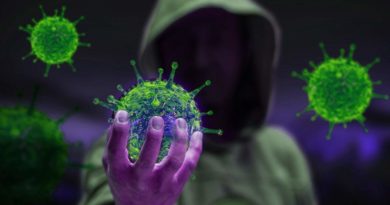What Do Princess Diana, JFK Conspiracy Theories Have to Do With COVID Vaccine Hesitancy?
January 25, 2022
Even though this seems like a golden age of misinformation and conspiracy theories powered by social media and other online platforms, COVID-era vaccine skepticism and falsehoods have abundant historical precedent.
But first, a COVID sampler from just the past week:
- Musician Eric Clapton, a prominent anti-vaxxer despite being vaccinated, now says he was duped into immunization by subliminal pharmaceutical advertising and says anyone vaccinated is a victim of “mass formation hypnosis” — a condition not recognized by the medical community — and thus hypnotized into believing the vaccine actually works. This theory was advanced by Dr. Robert Malone, now banned from Twitter, in late 2021 on Joe Rogan’s podcast.
- Robert F. Kennedy Jr., son of the late Sen. Robert F. Kennedy, compared COVID vaccine mandates to Nazi Germany at an anti-vaccine rally at the Lincoln Memorial, suggesting Jews had more freedoms than today’s unvaccinated Americans. “Even in Hitler’s Germany,” he said, “you could cross the Alps to Switzerland. You could hide in an attic like Anne Frank did.”
- Green Bay Packers quarterback Aaron Rodgers, who last summer said he was “immunized” against COVID-19 only to miss a game in November after testing positive amid reports he was unvaccinated, responded to President Biden’s classification of COVID-19 as a “pandemic of the unvaccinated” by mangling the results of a recent CDC study. “They come out and talk about 75 percent of COVID deaths have at least four comorbidities,” Rodgers told ESPN. “And you still have this fake White House set saying that this is the pandemic of the unvaccinated, that’s not helping the conversation.” The actual study found only 36 of more than 1.2 million people fully vaccinated between December 2020 and October 2021 died because of COVID-19 — and most had pre-existing conditions.
- John Stockton, an NBA Hall of Fame guard and one of the most famous players in Gonzaga University history, was banned from his school’s home games after refusing to comply with its mask mandate. Stockton previously voiced his contempt for COVID vaccines, mask mandates and lockdowns. He also appeared in an anti-vaccine documentary last summer, “Covid and the Vaccine: Truth, Lies and Misconceptions Revealed.”
Strange as it may sound, conspiracy theories might actually qualify as psychological comfort food.
“It’s self-reinforcing information bias,” says Dr. John Santopietro, physician-in-chief of the Hartford HealthCare Behavioral Health Network. “We want things to be OK. We don’t want to be scared we may die. If we think it’s the flu and think we don’t need a mask, it can support thinking that we’re OK. It also didn’t help that we were all learning about this on the fly in the beginning so information did actually change about whether or not to wear masks, for instance.”
If you believe in conspiracy theories you’re more likely to believe anti-vaccine conspiracies, according to pre-COVID, 2019 research published in the journal Health Psychology. The researchers surveyed more than 5,300 people from 24 countries in 2016 questionnaires that assessed anti-vaccine sentiment and belief in four conspiracy theories:
- Princess Diana was murdered.
- The American government new about the 9/11 attacks in advance and let them happen.
- A shadowy group of elites are plotting a new world order.
- President John F. Kennedy was murdered as part of an elaborate plot.
Those who believed strongly in the conspiracy theories were most likely to have anti-vaccine sentiments, regardless of where they lived or their education level.
“In a political and social crisis,” says Dr. Santopietro, “there is a lot of confirmation bias for your own current opinion. People weigh all information against their bias and there’s a level of mistrust of anyone who says anything they don’t believe in.”
Here’s a historical snapshot of vaccine skepticism:
Smallpox
In 1853, the smallpox vaccine for children became the first vaccine mandate, immediately resisted by opponents with religious objections. In 1898, a “conscience clause” allowed those skeptics to avoid vaccination.
Rabies
Louis Pasteur, the French biologist who developed a rabies vaccine in 1885 by infecting rabbits with a weakened version of the virus, was accused of seeking profit from his work.
Tuberculosis (1921), Diphtheria (1923), Tetanus (1926) and Whooping Cough (1926)
This flurry of vaccine development also coincided with the use of aluminum salts to increase the vaccines’ effectiveness. Many years later, the same salts were suspected of causing a condition known as macrophagic myofasciitis, characterized by lesions and fatigue.
False Autism Study
A study by Andrew Wakefield published in 1998 in The Lancet, a prominent medical journal, associated autism with the MMR vaccine for measles, mumps and rubella. The paper was later determined fraudulent and retracted. In 2010, Wakefield was removed from the UK medical register for misconduct. Yet the anti-vaccine movement still cites this fraudulent work. (Robert F. Kennedy Jr. for years has suggested thimerosal, a mercury-based preservative used in some new vaccines, was a health threat and the federal government was hiding its link to autism.)
Swine Flu
Millions of vaccine doses developed for Swine flu, a respiratory disease also known as H1N1 that was discovered in 2009, were destroyed after the disease was determined not as deadly as suspected, adding to vaccine suspicion. Even more suspicion: One of the vaccines, Pandemrix, increased the risk of narcolepsy — 440 of 5.5 million recipients of the vaccine in Sweden were compensated after developing the sleep disorder.
Polio
The polio vaccine, developed in 1953 by Jonas Salk, was perhaps the most widely accepted vaccine in U.S. history. Yet today the viral disease, which causes paralysis in young children, remains a health threat in pockets of the world. The Taliban, which once banned the polio vaccine in Afghanistan as an effort by the West to sterilize Muslim children, restarted a door-to-door vaccine campaign last fall after a three-year pause.



